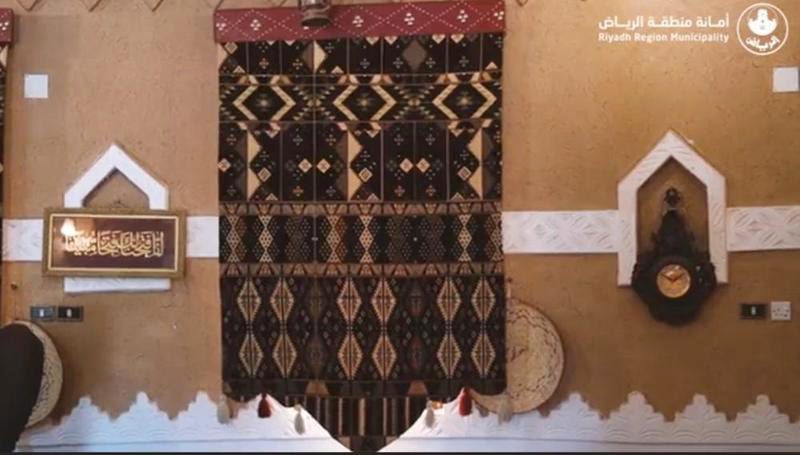RIYADH: The Riyadh municipality is planning to expand the establishment of dewaniyas, or reception areas, for the elderly as part of its strategy to create a social hub where people can socialize, and take part in sports, cultural and recreational activities.
According to the municipality, the dewaniyas will have 16 sub-municipalities in Riyadh’s residential neighborhoods to provide easy access for the elderly.
The well-equipped diwaniyas will be furnished with floor seating, elevated seating with electronic screens, a business center with computers and internet, exercise equipment, and outdoor multi-purpose seating.
Currently three diwaniyas are located in the neighborhoods of Laban, Ulaysha and Al-Rawda.
Mayor of Riyadh region Prince Faisal bin Abdul Aziz bin Ayyaf tweeted that opening up dewaniyas provides social space for the beloved segment of the society.
HIGHLIGHTS
• According to the municipality, the dewaniyas will have 16 sub-municipalities in Riyadh’s residential neighborhoods to provide easy access for the elderly.
• Mayor of Riyadh region Prince Faisal bin Abdul Aziz bin Ayyaf tweeted that opening up dewaniyas provides social space for the beloved segment of the society.
• According to a UN report, those aged 65 and above made up around 3.4 percent of Saudi Arabia’s population, a figure that is predicted to reach 6 percent by 2030.
He tweeted: “Diwaniyaat Alghaaleen (Dewaniyas for the Valuable) have opened in neighborhoods to enhance ties between residents and meet their needs. We have established three dewaniyas and will work on increasing their number to cover more areas.”
The Saudi Cabinet approved a new law to protect the rights of elderly citizens in the Kingdom early in January 2022.
Under Article 8 of the law, if a provider is unable to support the elderly financially, and no one in the elderly’s family can support them either, the Ministry of Human Resources and Social Development will support them financially.
The ministry is obligated to enable the elderly to live in an environment that protects their rights and dignity, and spreads awareness about the rights of the elderly.
The ministry is also responsible for providing reliable statistical data about the elderly, which will benefit researchers in conducting studies and research.
The law also requires the ministry to organize and implement appropriate programs for the elderly, to improve their skills, experiences, and hobbies, enhance their integration into society, encourage able-bodied elderly people to work, and promote volunteering activities serving the elderly.
The ministry must rehabilitate public and commercial facilities, residential neighborhoods, the surrounding environment, and mosques to ensure they are suitable for the needs of the elderly. It must also allocate places for the elderly in public facilities and at public events and urge the private sector, business owners, and civil bodies to care for them.
Government agencies should also prioritize elderly people who are seeking basic services, particularly health and social services. The ministry must also grant the elderly a privilege card that allows them to benefit from the public services to meet the necessities of their daily lives.
According to a UN report, those aged 65 and above made up around 3.4 percent of Saudi Arabia’s population, a figure that is predicted to reach 6 percent by 2030.
Bader Aleyadah, chairman of Saudi Elderly Support Organization, told Arab News: “There is no doubt that the establishment of three dewaniyas for the elderly in Riyadh neighborhoods is one of the initiatives that will have a significant impact in enhancing the role of the elderly in society and improving services provided to them.”
The organization is working with businessmen and charitable institutions to establish care centers for the elderly that include services such as areas to socialize, entertainment, temporary housing, permanent housing services and medical care.
The project will begin in Riyadh and will be followed by similar centers opening in other Saudi cities.
Aleyadah said that the organization had previously implemented the elderly-friendly neighborhood initiative in collaboration with the Royal Commission for Jubail, which develops safe, comfortable diwaniays in residential neighborhoods.
“We look forward to cooperating with the Riyadh municipality and the rest of the municipalities to provide everything we can to expand the diwaniyas in other neighborhoods and transform residential neighborhoods into friendly neighborhoods for the elderly,” he said.
Ghazi Al-Malih, former deputy minister of labor and social development for Inspection and Work Environment Development, said that the elderly have numerous rights, and the Riyadh municipality’s initiative to build diwaniyas for the elderly under one roof is a commendable gesture.
Some of the elderly have worked as doctors, engineers, writers, poets and business owners; and holding multiple events in these offices will benefit the group as a community.
Al-Malih, who was also a former consultant in the social security sector, said that events should not be limited to entertainment, and the community should benefit from elderly people’s experience such as providing consultations and mediation among others.














